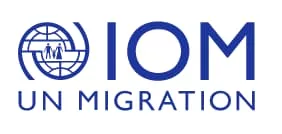Tribal Impact

Корінні племена в США та в усьому світі стикаються з особливими викликами не лише під час стихійних лих, але й у спокійні періоди. Остання ініціатива GEM, спрямована на підтримку цих спільнот, буде здійснюватися у безпосередній співпраці з лідерами, старійшинами та мешканцями племен, щоб максимально шанобливо ставитися до земель та культурної історії, на яких ми працюємо. Наш напрямок "Вплив на племена" матиме цілорічні програми та місії, присвячені виключно допомозі в разі стихійних лих, підвищенню готовності до них та довгостроковому зміцненню через освіту. За допомогою цього напряму ми також сподіваємося заохочувати та посилювати голоси та права корінних народів і виступати на місцевому, національному та міжнародному рівнях за збереження та рівність у цих громадах.
Cold Springs Rancheria
GEM USA West team continually supports the Cold Springs Rancheria tribe. This is a low-income community that faces societal challenges, as well as hardships around preserving their culture. The GEM team is working with this tribe to reestablish and preserve their culture, in order for future generations to continue their heritage. GEM also supports this group, located in Tollhouse, California, with supplies such as mattresses, home goods, school supplies, Family Necessity Kits, and more.
Tule River
Located in Tulare County, California, the Tule River Reservation is presently home to 1,900 tribal members. GEM has a close relationship with this community, its Chief, Tribal council members, and spiritual leader. Initially responding to flooding, GEM now supports this community on a routine basis. Immediate needs, like food, is always important, but we strive to offer this community longer-term solutions to strengthen itself. For example, computers for schooling or large-scale water supplies.
Гватемала
Our GEM LATAM Director met and spoke with indigenous entrepreneurs in Guatemala, for training and education. Promoting education and business programs that sustain indigenous communities is important for preservation of their culture and livelihoods.










